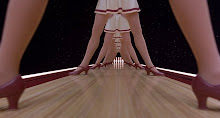A recent article in Psychological Science apparently suggests that the absurd and unexpected juxtapositions found in surrealist literature engages the brain's ability to detect patterns. Pattern dectection is a crucial part of learning from infancy onwards and forms a large part of any IQ test.
I haven't read the article itself yet, but linked below is the summary. However this is a great excuse to post some Max Ernst. Ernst can be as unsettling as the quote below from their press release, with what seems like wild speculation on what the unconscious desires. Like the surrealists these authors seem to really dig Freud.
I haven't read the article itself yet, but linked below is the summary. However this is a great excuse to post some Max Ernst. Ernst can be as unsettling as the quote below from their press release, with what seems like wild speculation on what the unconscious desires. Like the surrealists these authors seem to really dig Freud.
"You get the same pattern of effects whether you're reading Kafka or experiencing a breakdown in your sense of identity," Proulx explained. "People feel uncomfortable when their expected associations are violated, and that creates an unconscious desire to make sense of their surroundings. That feeling of discomfort may come from a surreal story, or from contemplating their own contradictory behaviors, but either way, people want to get rid of it. So they're motivated to learn new patterns."
Well, since WWII I think we've called this cognitive dissonance, but they get Ballard points for going all old-skool here. A full review to follow...
...Well, since WWII I think we've called this cognitive dissonance, but they get Ballard points for going all old-skool here. A full review to follow...
Link to ScienceDaily article
Image: Max Ernst. The Robing of the Bride. Oil on canvas. 130 x 96 cm. 1940.




0 comments:
Post a Comment